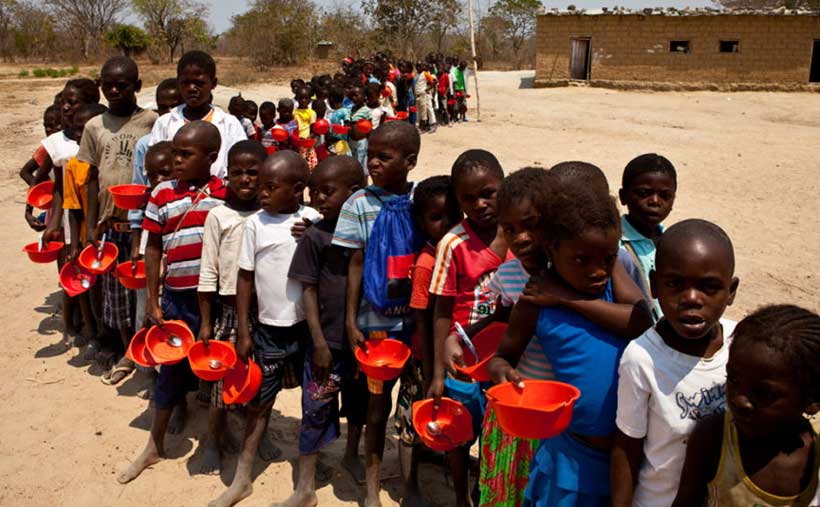One question often stands out: Is having children in modern Africa worth it? Across the African continent, where traditions and family values run deep, this question takes on unique cultural and economic dimensions. Often called “bundles of joy,” children come with immense happiness and significant responsibilities.
While they bring laughter, love, and legacy, they also have financial implications. In today’s modern world, the decision to have children is influenced by many factors, from economic stability to personal aspirations.
Globally, there’s a noticeable trend of declining birth rates, especially in affluent nations. The reasons are multifaceted, ranging from economic pressures to changing societal norms. In Africa, while large families were once the norm due to agricultural needs and communal living, urbanization, and modernization have started to influence family planning decisions.
Children in modern Africa, while priceless, come with a price tag. From prenatal care to education, the financial journey of raising a child is long and often challenging. Parents bear the brunt of these costs in many African countries, where public services might be limited. The decision to have more children is not just an emotional one but a profoundly economic one.
The African Family: Balancing Tradition and Modernity
Does parenthood equate to happiness? Research suggests a “happiness bump” around a child’s birth. However, this heightened joy tends to plateau as the realities of parenting set in. Yet, in many African cultures, children are seen as a source of pride, old age support, and lineage carriers.
The communal nature of African societies also means extended families and communities often share the joys and burdens of child-rearing. Modern challenges, such as pursuing higher education and career aspirations, especially among African women, influence family sizes. The empowerment of women, access to family planning, and changing societal expectations are reshaping the African family structure.
While individual choices play a significant role, external support systems are crucial. In many African nations, there’s a growing recognition of the need to support families. From parental leave policies to affordable childcare, governments have a role in making parenthood a feasible and joyful journey.
In Africa, where tradition and modernity often intersect, ancestral values and contemporary realities influence the decision to have children. While the African spirit values community and lineage, modern challenges, such as urbanization, economic pressures, and changing gender roles, mold family decisions.
The decision to have children in modern Africa is profoundly personal and influenced by many economic and cultural factors. In recent years, there’s been a global trend of declining birth rates, and while this is more pronounced in developed nations, African countries are not immune to these changes. These decisions personally affect the nationals at large:
- Economic Growth and Development: A decline in birth rates can lead to a demographic dividend, where the proportion of the working-age population is more significant than the non-working-age population. This can boost economic productivity, provided there are enough jobs available.
- Improved Women’s Rights and Education: A decline in birth rates often correlates with improved rights and education for women. As women gain more control over their reproductive rights and prioritize education and careers, they often choose to have fewer children.
- Better Healthcare and Child Welfare: With fewer children, there’s potential for better allocation of resources. This could lead to improved healthcare services and better child welfare, as parents can invest more time and resources in each child.
- Environmental Benefits: A smaller population can reduce the strain on natural resources, leading to more sustainable development and less environmental degradation.
While there are good outcomes to it, these decisions also bring about some negatives:
- Potential Aging Population: If the decline in birth rates is not balanced with a corresponding reduction in death rates, African countries could face an aging population. This can strain social services and healthcare systems, as there are fewer young people to support older people.
- Economic Strain: While a demographic dividend can boost the economy, if there aren’t enough jobs to meet the needs of the working-age population, it can lead to unemployment and economic stagnation.
- Cultural Implications: Large families are a source of pride and social security in many African cultures. A decline in birth rates might challenge these cultural norms, leading to potential societal tensions.
- Dependency on Immigration: To counteract the effects of a declining population, countries might need to rely on immigration. This can bring its own set of challenges, from integration issues to potential cultural clashes.
Africa’s Birth Rate Dilemma: Progress or Peril?
While deeply personal, having fewer children in modern Africa has broad societal implications. For African countries, the impact of declining birth rates is multifaceted. While there are clear benefits, from economic growth to improved women’s rights, there are also potential challenges to consider, from financial strains to cultural implications.
As with any significant societal shift, it’s essential to approach the issue with a balanced perspective, considering the potential benefits and challenges.
The modern African woman is not just a homemaker; she’s an educator, an entrepreneur, and often, the backbone of her family. With increased access to education and career opportunities, many African women delay or even forgo childbirth.
This shift reflects personal aspirations and is a testament to the changing societal norms and women’s empowerment across the continent.
Read more articles by Mariam Hamis.

